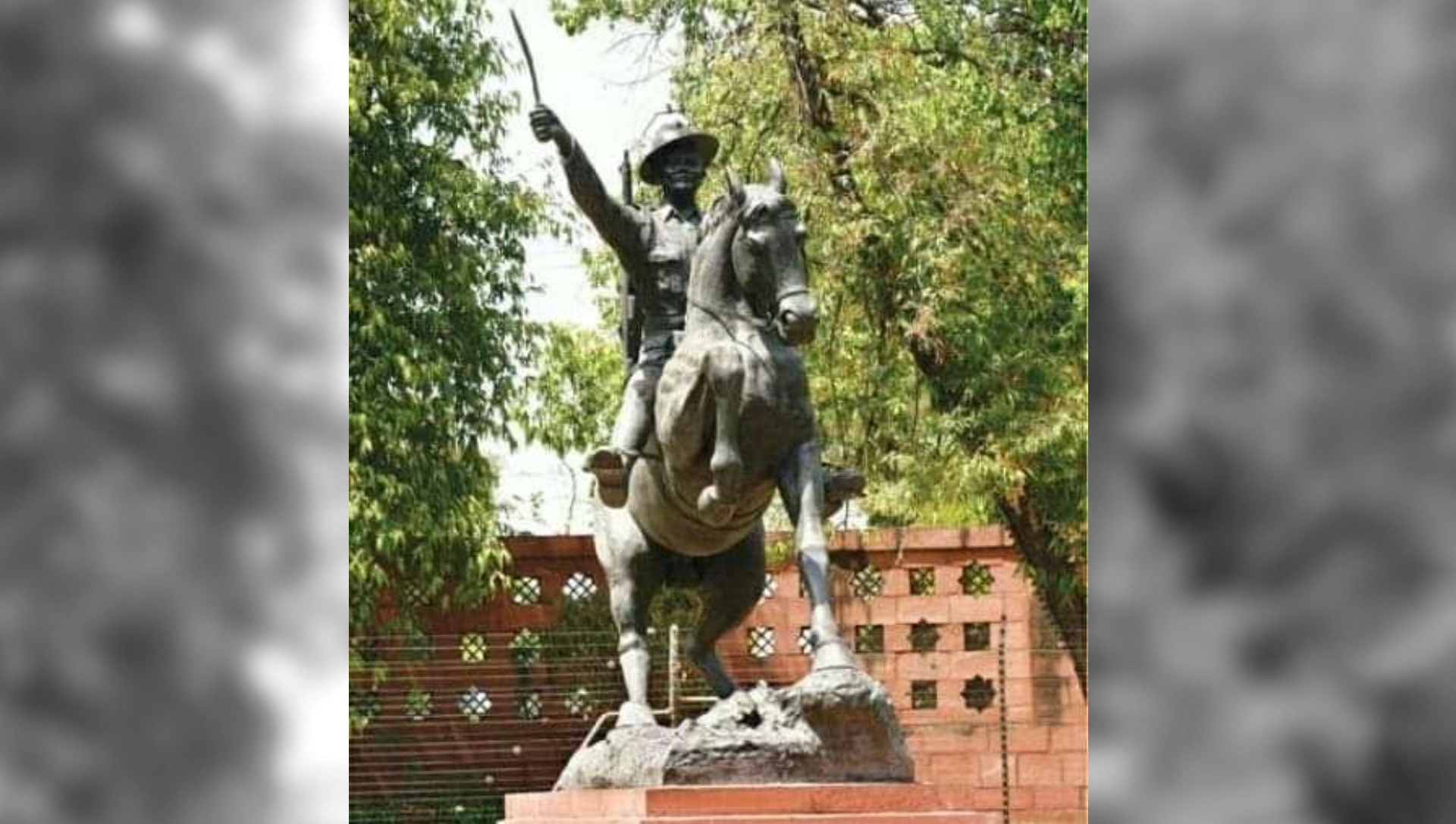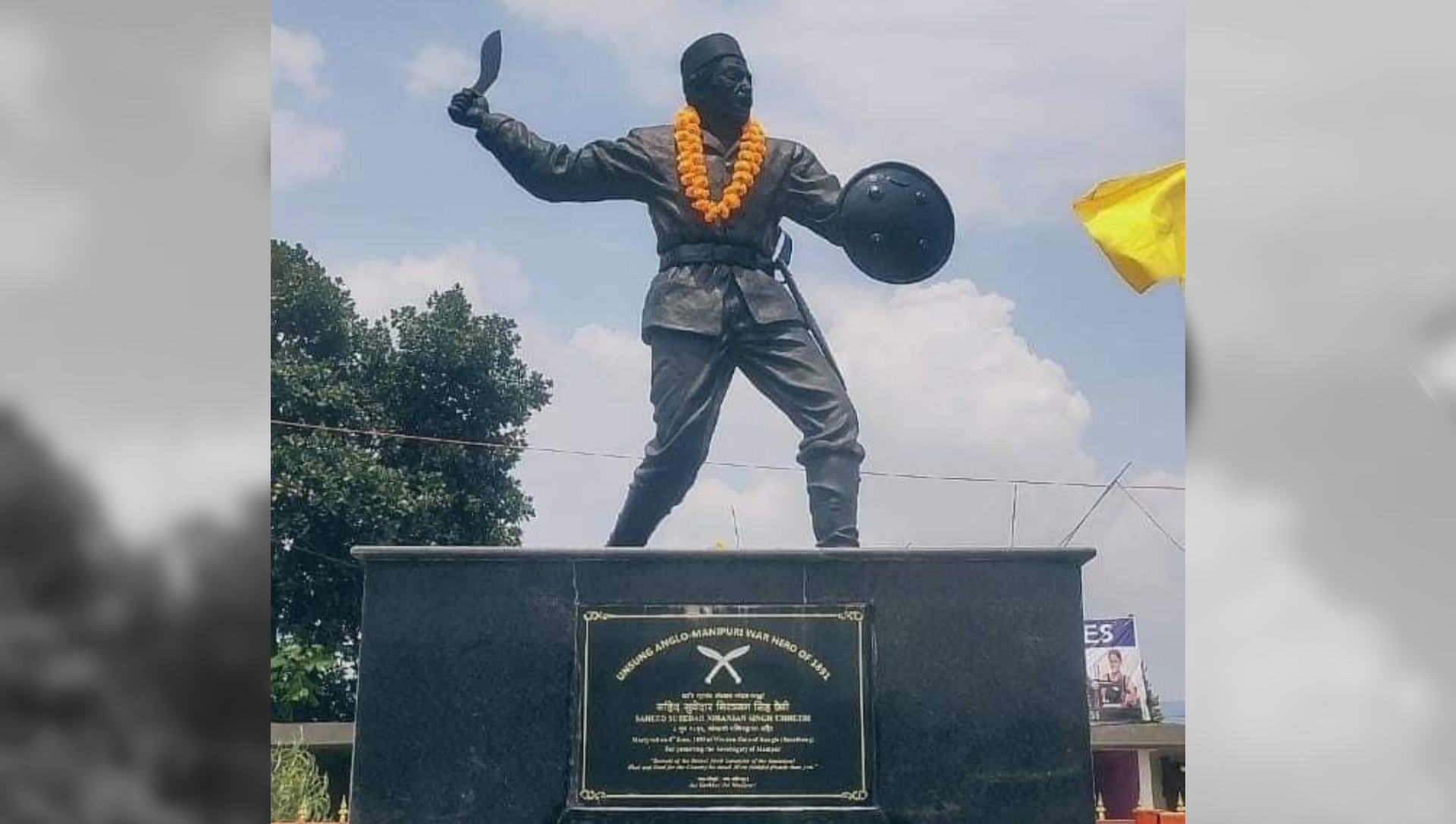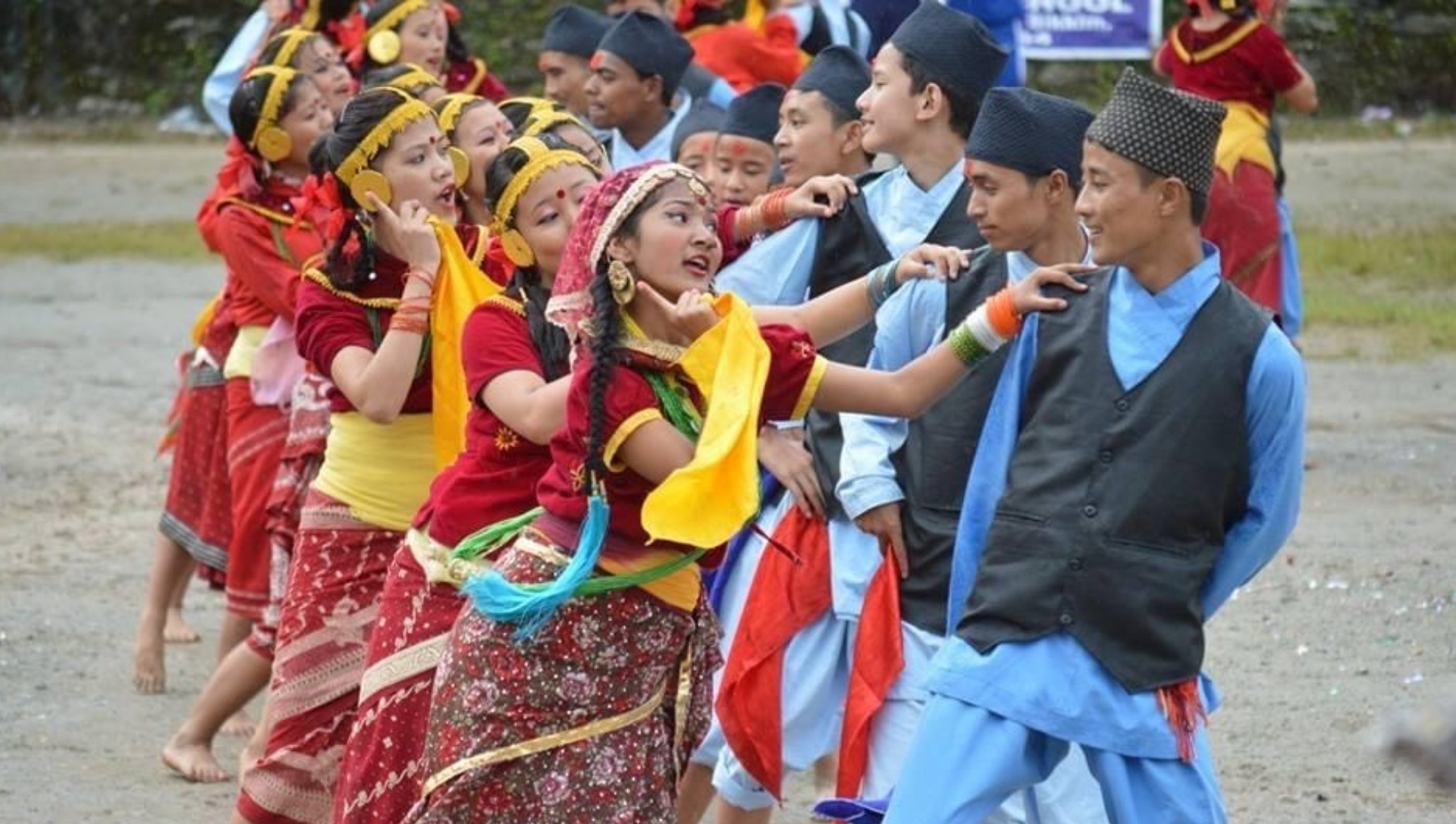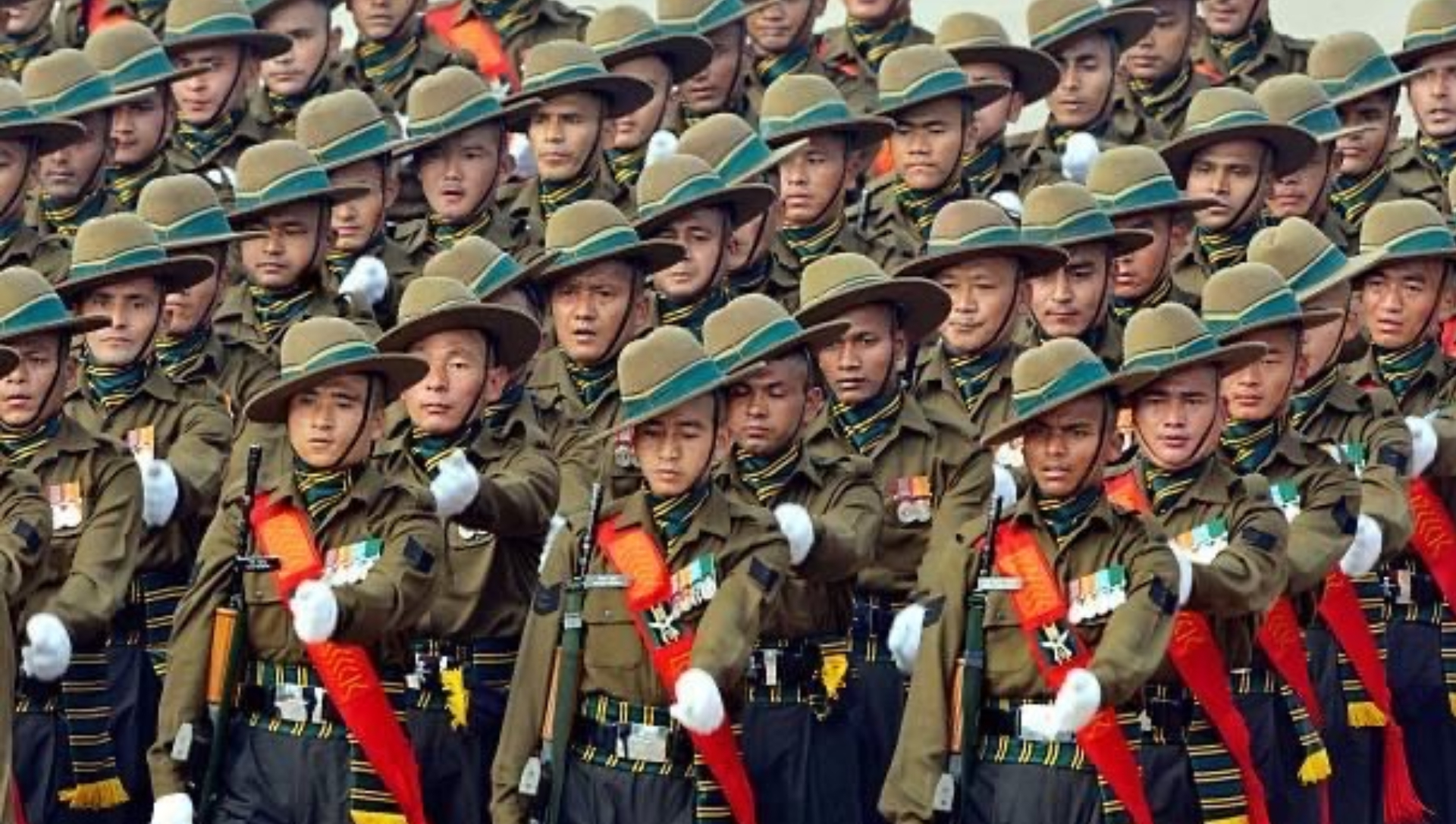GANGTOK: Nepali speaking citizens of India have a long and illustrated history with the country. While their bravery is folklore in itself, Indian Nepalis, also known as Bharatiya Gorkhas, also fought for our independence and formed an integral part of Netaji Subash Chandra Bose’s Indian National Army.
However, the Gorkhas were understandably outraged when All India Women Conference (AIWC) executive member Chandra Prabha Pandey chided the Gorkha artists performing in the Nepali language at the ‘Azadi Ka Amrut Mahotsav’ (AKAM).
Pandey’s contention: Nepali or Gorkha Bhasha is a non-Indian language.
It all started with Pandey, who is also the head of the events at AIWC, sending out a note on June 9 asking for contributions from AIWC regional chapters for the AKAM celebrations. The contributions were supposed to be patriotic songs and dances performed in regional languages.
When artists from the Kalimpong district sent in their contribution, they were rudely told off by Pandey that “we cannot showcase performances in non-Indian languages”.
Shocked by the comments, the artists reached out to AIWC Kalimpong secretary Aruna Pradhan. Pradhan tried to reason with Pandey. But instead, Pandey said that “they cannot send the National Anthem sung in the Nepali language, as it is not a language from India”.
While Pradhan tried to reason and explain that Gorkhas are citizens of India, Pandey insisted that “people of neighbouring countries who come and settle in India are migrants not necessarily a citizen of our country”.
Reacting to the incident, Bharatiya Janata Party (BJP) Member of Parliament from Darjeeling Raju Bista termed it as “deliberate racism”.
“By claiming that Nepali is not an Indian language, and not allowing performance in the Nepali language, that too on the pious occasion of ‘Azadi ka Amrit Mahotsav’ celebrations, AIWC has shown deliberate racism against the Gorkha community of our nation,” Bista told The New Indian.
“Perhaps AIWC members are unaware that our Gorkha ancestors have played a vital role in ensuring India’s Independence. I would suggest AIWC read about the contributions of Gorkha braves like Saheed Durga Malla of INA, Saheed Helen Lepcha, Dal Bahadur Giri, Capt Ram Singh Thakuri of INA, Jangbir Sapkota, Subedar Niranjan Chettri and thousands of other Gorkha brave hearts who have laid down their lives for our nation’s independence and keeping her safe from the enemies of our nation post-independence,” Bista said.

Bista also sent a letter to the AIWC president seeking an apology and removal of Pandey from her position and office immediately.
Former MP Dil Kumari Bhandari, who is a senior leader from Sikkim Sangram Parishad, expressed her anguish at the ignorance of the person, she said, “To say I am infuriated is an understatement. I am still attempting to process the voice message forwarded to me.”
“The conversation between the AIWC president and Pradhan is highly damaging on several accounts. Firstly, we have highly ignorant people like Kakde functioning as a president of an organization like the AIWC which seeks to bring about equality, all the while unaware of her discriminatory views towards the 1.5 crore Nepalis of India,” Bhandari added.
“The Nepali language was included in the Eighth Schedule of the Indian Constitution in 1992. Thirty years later we continue to face discrimination. Secondly, I am disappointed in Pradhan’s response to Kakde’s comment about Nepali not being an Indian language. Why are we apologizing for someone else’s ignorance? Pradhan could have educated the oblivious president on Nepali’s status as granted by the Indian Constitution,” Bhandari added.
Ramesh Bastola, the general secretary of the youth wing of Bharatiya Gorkha Parisangh (BGP) said, “It is shocking that an esteemed reputed organization like AIWC would have members, who seem to be ignorant about the fact that the Nepali language, or Gorkha Bhasa, is one of the national languages of India spoken by the 10.5 million Indian Gorkha community. It is duly recognised as such under the VIIIth Schedule of the Indian Constitution.”
“In an emergent virtual core committee meeting held today, Bharatiya Gorkha Yuva Parisangh (BGYP) has decided to take up the issue legally if she doesn’t apologise in the public domain through social media within 24 hours of publication of our statement and in-person in next AIWC meeting,” Bastola warned.
Sanjana Newar, member of the legal team of BGYP and an advocate from Tura, Garo Hills of Meghalaya, said, “I am outraged and shocked at the lack of knowledge and obvious display of ignorance on the part of an All India Women’s Conference (AIWC) member Chandra Prabha Pandey. Yuva Parisangh has decided to file a legal suit in this matter and I have been chosen to represent the case.”

Pradhan, meanwhile, demanded an unconditional apology to the Indian Gorkha community as it doesn’t reflect the views of the organisation. She also informed that the said event stands cancelled after the matter reached office bearers of AIWC.
Pradhan also said that she had requested Pandey to issue an apology in the public domain within June 14 to which she didn’t respond.
“She blocked me from WhatsApp and Social Media. It is only after that I brought the matter into the public domain. I am glad to learn that Bharatiya Gorkha Yuva Parisangh is taking up the matter legally and shall file an online petition also so that no such instances occur again,” Pradhan said.
Commenting on the issue, senior community journalist Nanda Kirati Dewan, said, “Many people have a misconception about the Gorkhas in India – that they are foreigners and have migrated from Nepal. There could not be a greater mistake than this. The Gorkhas are the aborigines of India and they can trace their history back to ancient times.”
“The Gorkha community is the product of Indo-Aryan and Mongoloid assimilation from ages past. As a linguistic group, they can trace their origin back to Indo-Aryan and Tibeto-Burman beginnings. The Gorkhas consist of both Indo-Aryan and Mongoloid racial groups,” Dewan said.
“Yuva Parisangh will fight tooth and nail legally against such racial attacks and set a deterrent example. Our legal team will be ready with legal actions and send legal notice to the accused after the ultimatum. The social media team is working on an online petition which will be activated if an unconditional public apology is not received,” Dewan, who is also the president of Bharatiya Gorkha Yuva Parisangh, added.

Development practitioner Namrata Sharma, who hails from Bihar, said, “AIWC should issue a statement in this regard and clarify the organisation’s stand on this matter. If Pandey does not apologize in the public domain, then she should wilfully step aside from the prestigious organization. If she doesn’t own her mistake then she should be relieved from her responsibilities for failing to acknowledge the diversity of this nation and insensibly handling and hurting community sentiments of the Gorkha community.”
“Such action will act as a deterrent for the future so that such incidents never occur again. Gorkhas have been on the receiving end on many occasions and mostly over the identity or racial issues and it’s high time we set deterrent examples. We had successfully led the digital movement over racial slur against the North Eastern community in a web series,” added Namrata Sarma, who is also the National Secretary of BGYP.

















